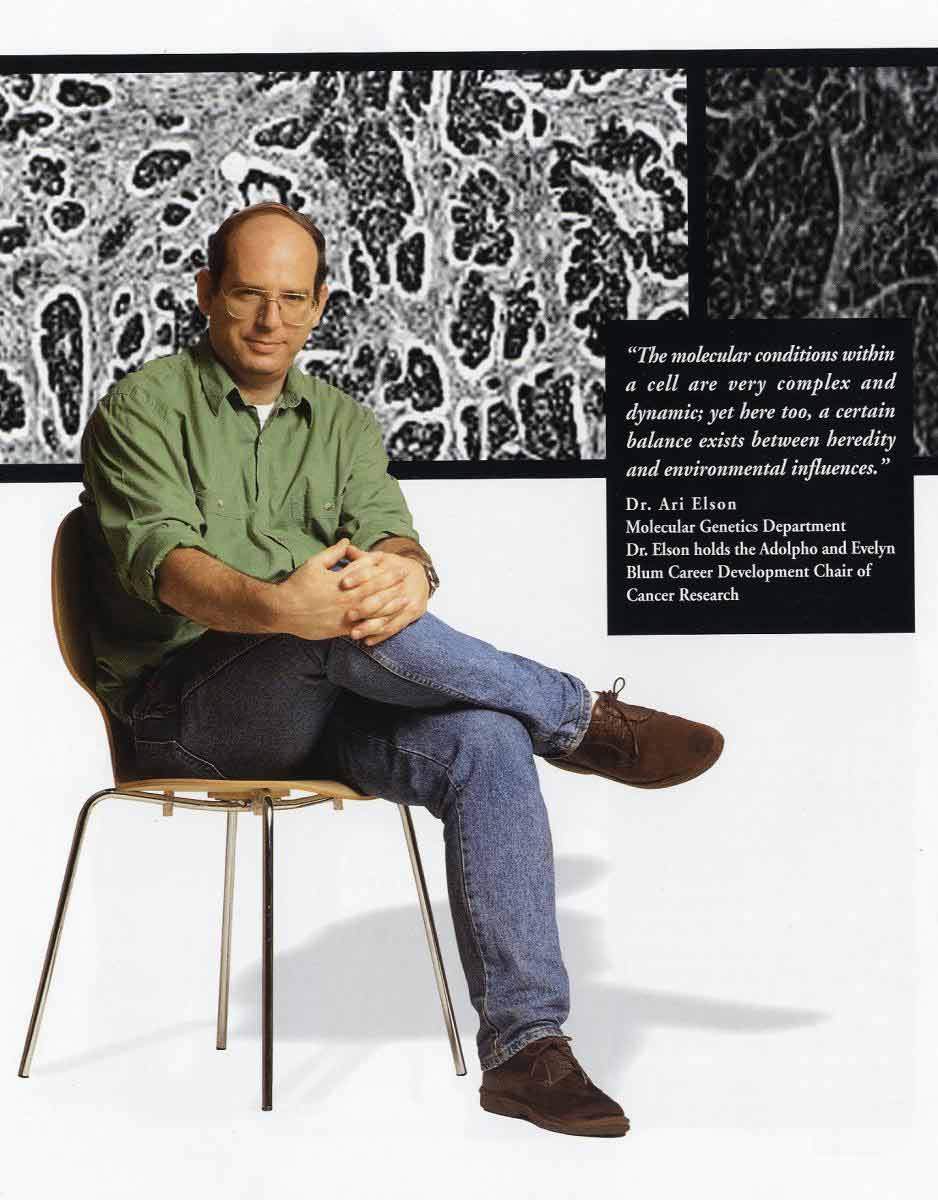Are you a journalist? Please sign up here for our press releases
Subscribe to our monthly newsletter:

Just like a person who “hears voices,” the cancerous cell sometimes imagines receiving molecular messages instructing it to divide and multiply. Within the cell that supposedly receives the message, a communication process reminiscent of a relay race can take place: a certain protein approaches another protein, attaches a phosphate group to it and activates it. The activated protein similarly activates another neighboring protein, and so on, until a command originating from the faulty pseudo-message reaches the cell nucleus and causes cell division.
At the same time, another process takes place in the cell: specific enzymes approach the activated proteins and remove the phosphate groups. Dr. Ari Elson of the Genetics Department in the Weizmann Institute is investigating the gene responsible for the manufacture of one of these enzymes, known as PTP epsilon. Knowing how the process of "signal transduction" is regulated and epsilon’s
role in it may help us to understand the carcinogenic process and increase our ability to arrest it.
In his investigation, Elson employs several strains of transgenic mice that serve as models for the study of breast cancer. He suspects that epsilon operates in various ways: at times it arrests the carcinogenic process and at other times it participates in it, depending on the context in which it finds itself. Elson’s current research aims to verify this suspicion and to understand how context affects the action of epsilon and the development of malignancies.
“The molecular conditions within a cell are very complex and dynamic; yet here too, a certain balance exists between heredity and environmental influences.”
Dr. Ari Elson, Molecular Genetics Department
Dr. Elson holds the Adolpho and Evelyn Blum Career Development Chair of Cancer Research.